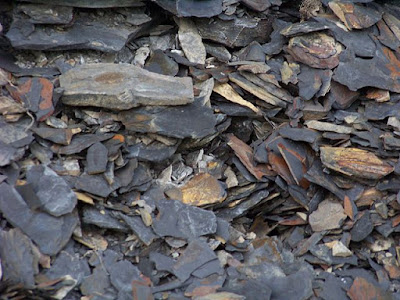The Hard Truth on Mudrock
There are several types of sedimentary rock, one of which is mudrock. From there, we have several kinds of mudrock, including mudstone and shale. If you do your own little geology experiment by putting sand and dirt in a jar with water, then shake it up, you can watch the stuff settle. It's more exciting than watching paint dry because you can see how the larger particles settle first, and the finest particles take much longer.
Mudrock can be mighty thick, such as the Marcellus Shale. Uniformitarian geologists will tell you that it took millions of years to form, and watching that mixture you shook up earlier might cause you to agree. Someone might wonder how biblical creationists can insist that the earth is about 6,000 years old when secular geologists are throwing around deep time expressions left and right. Also, mudrocks comprise most of the geological record.
Research was done (presumably by researchers, hence the name). They found that in fast-moving water, particles of mud would stick together and deposit much more rapidly. As we have seen on this site (as well as many other creationary sites), the Genesis Flood had a lot of water moving very quickly. The research supports the Flood account.
 |
| Wikimedia Commons / Lvklock (CC BY-SA 3.0) |
Research was done (presumably by researchers, hence the name). They found that in fast-moving water, particles of mud would stick together and deposit much more rapidly. As we have seen on this site (as well as many other creationary sites), the Genesis Flood had a lot of water moving very quickly. The research supports the Flood account.
Geoscientists used a special kind of instrument called a racetrack flume at Indiana University in Bloomington. A normal flume looks like a very long, narrow glass aquarium. Researchers dump sediments in one end and release water to surge over those sediments. The geoscientists then watch to see how the water deposits the sediments downflow. Normally a flume is very long and straight, but a racetrack flume goes in a circle. So when the water is released, it flows around and around in a large circle and accelerates as it goes. As a result, the water flows much faster than in a long, straight flume.To read the entire article or download the MP3 version, click on "Mudrocks in Minutes".